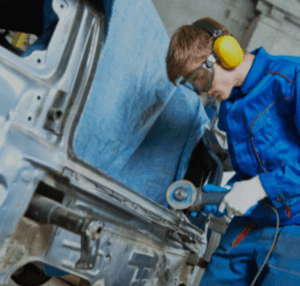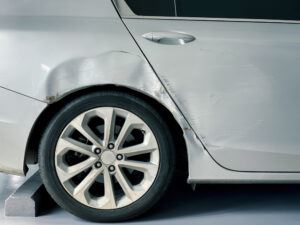Overheating is one of the most common problems you’ll have to deal with as a car owner and driver. It’s especially common during the summer when the temperature is high and the A/C is on full blast. However, it can occur even during the winter, especially if you run your heater for hours.
So what do you do if your car starts to overheat?
Step 1: Turn off the A/C. The air conditioner will put a strain on the motor and will lead to overheating. If you see the temperature needle climbing, turn off the A/C. If that doesn’t solve the problem, try turning the heater on full blast. This transfers heat away from the engine, slowing down the overheating. This may be enough to stop the car from overheating until you can get to a gas station or car repair shop.
Step 2: Pull over. Get to the side of the road and turn off the car. Preferably stop driving before the temperature rises too far. You should always keep an eye on your temperature gauge when driving, and pull over if it passes the half-way mark. If the car is letting off steam, it means it’s dangerously close to serious overheating.
Step 3: Give it time to cool off. If you try to open the radiator cap while it’s still hot, you’ll end up with liters of anti-freeze and water spraying all over the place. Give your car time to cool off—at least 20-30 minutes, or until you no longer see steam.
Step 4: Top up the radiator. Nine times out of ten, the car is overheating because it’s low on antifreeze. Try to always have a bottle of antifreeze in the trunk of your car, or carry water with you wherever you go. When your car starts overheating, add in a bit of antifreeze or water. It will help to cool down the radiator and prevent future overheating. NEVER pour cold water over a hot engine!
Step 5: Check for puddles. You should take a look at the coolant tank, a translucent plastic tank that sits near the radiator. If the tank is nearly empty, it’s likely you’ve sprung a leak and are looking coolant. Check underneath the car for a puddle or signs of dripping. A leaking coolant tank can allow your antifreeze to drain out, increasing the risk of antifreeze.
Once the car has cooled down and you’ve topped up the fluids, it’s time to get yourself to the nearest gas station or car repair shop and give the car a thorough examination. See if you can find the problem (a leaking hose or tank), and take steps to repair it before the overheating of your engine leads to serious consequences!




